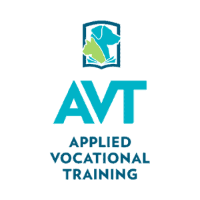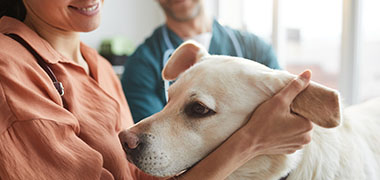
This role has a low level of AI exposure. Core skills such as adaptability, social intelligence, and complex physical tasks remain beyond the capabilities of current AI.
Explore all careersA Wildlife Carer cares for injured native animals and orphans until they can be released back into the wild, requiring flexibility and patience.
Get qualified to work as a Wildlife Carer with a course recognised across Australia. Speak to a training provider to learn more.













In Australia, a full time Wildlife Carer generally earns $1,200 per week ($62,400 annual salary) before tax. This is a median figure for full-time employees and should be considered a guide only. As you gain more experience you can expect a potentially higher salary than people who are new to the industry.
 Courses.com.au Team
Courses.com.au Team
The number of people working in this industry has remained stable in recent years. There are currently 16,500 people employed as an animal attendant in Australia and many of them work as Wildlife Carers. Wildlife Carers may find work across all regions of Australia.
Source: Australian Government Labour Market Insights
 Courses.com.au Team
Courses.com.au Team
If you’re interested in becoming a Wildlife Carer, consider enrolling in a Certificate III in Captive Animals. This course covers a range of topics including rescuing animals, applying first aid, rehabilitating native wildlife and caring for very young animals.
 Courses.com.au Team
Courses.com.au Team
Browse occupations related to Wildlife Carer



Embarking on a rewarding career as a Wildlife Carer in Canberra is a path filled with passion for animal welfare and a desire to make a difference in the lives of native wildlife. Wildlife Carer courses in Canberra provide aspiring carers with essential skills and knowledge needed to support our furry, feathered, and scaly friends. These courses are delivered by accredited training providers who are recognised within the industry, ensuring that you receive high-quality education tailored to the specific needs of wildlife care.
In addition to core training in wildlife rehabilitation, students may also explore related fields within animal welfare, such as Animal Welfare and Veterinary courses or Animal Care. These interconnected courses can enhance your understanding of overall animal health and care, making you a more holistic Wildlife Carer. Canberra's rich biodiversity and native species make this training particularly relevant, as you'll learn how to address the specific challenges faced by local wildlife.
Completing Wildlife Carer courses in Canberra not only equips you with practical skills but also opens up various job opportunities within the animal care industry. You may find yourself drawn to roles such as a Pet Groomer, Animal Attendant, or even a Zoo Keeper. Each of these careers requires a solid foundation in animal handling, care techniques, and behaviour, making your wildlife training directly applicable.
Moreover, the wildlife care profession is closely aligned with other vital roles in the ecosystem, such as Kennel Hands, Cattery Attendants, and Kennel Attendants. Specialising in wildlife care can also lead to opportunities as an Animal Technician, Zoologist, or even an Ecologist, all of which play significant roles in conservation and wildlife management within the Canberra region.
By enrolling in Wildlife Carer courses in Canberra, you are taking the first step towards a fulfilling and impactful career. The training you receive will not only prepare you for various animal care roles but also enable you to contribute significantly to the preservation of wildlife. If you're ready to start your journey in wildlife conservation, check out the array of options available to you at Courses.com.au and discover how you can help protect and nurture Canberra's wildlife.